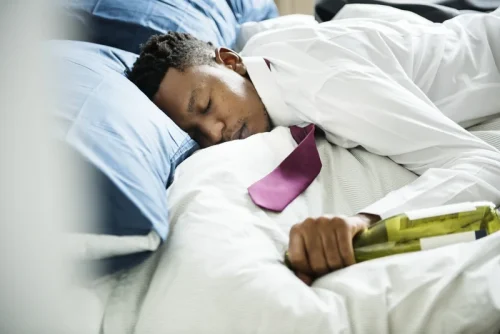
This means they need to consume more alcohol to achieve the same calming effect. Increased tolerance can lead to a cycle of escalating alcohol consumption. Panic attacks are sudden episodes of intense fear that trigger severe physical reactions. Common symptoms include rapid heartbeat, sweating, trembling, and a sense of impending doom. In other words, alcohol is not all bad – but it does have the potential to damage your psychological and/or physical health. If you’re someone who is prone to panic attacks when there is no obvious external trigger, dealing with the stress of mistakes can make having one more likely.
- Around 3.1% of people in the U.S. have generalized anxiety disorder, according to the Anxiety & Depression Association of America.
- However, once it leaves your system, your anxiety can return stronger than before, creating a cycle of dependence.
- No one should assume the information provided on Addiction Resource as authoritative and should always defer to the advice and care provided by a medical doctor.
- While many people do feel some anxiety after drinking, regular alcohol-induced panic attacks are a serious matter.
- Long-term heavy drinkers may be predisposed to developing an anxiety disorder.
Table of Contents
Self-Help and Management Strategies
- For most patients, Talkiatry treatment is just as effective as in-person psychiatry (American Psychiatric Association, 2021), and much more convenient.
- Our specialized treatment programs focus on addressing both alcohol use and panic disorder.
- Sweating, particularly night sweats, affects 50-70% of individuals with alcohol-induced anxiety disorder.
- Alcohol is a diuretic, causing increased urination and dehydration.
Or become so engrossed in a book or movie that you lose track of time and your surroundings? If you’ve experienced one or both of these scenarios, you’re not alone. Inpatient rehabilitation may be necessary for severe cases, providing a structured environment for detoxification and intensive therapy. Nausea or stomach discomfort can arise, sometimes leading to digestive issues. Muscle tension, especially in the neck and shoulders, is also prevalent. Alcohol also disrupts the delicate balance of chemicals in the brain and body.
Schizophrenia vs Multiple Personality: Understanding the Key Differences
With the right support and strategies, you can break what is Oxford House free from this cycle and find better ways to manage your anxiety. Alcohol’s diuretic effect causes dehydration, which can heighten feelings of anxiety and nervousness. Alcohol often leads to poor food choices, creating physical discomfort that can mimic anxiety symptoms.

Why Alcohol Makes Panic Attacks Worse
Alcohol is arguably among the most dangerous substances, not only due to its significant health risks but also because of its widespread availability. We’re here to help you regain your peace of mind and live a healthier, more balanced life. Reactions like skin flushing or extreme fatigue could indicate an alcohol allergy, often accompanied by mood shifts and anxiety.
Feeling unwell?
Here you can find useful links and phone numbers to get https://ecosoberhouse.com/ the support you need. Specific support is also available if you need help with your drinking. They can be frightening, but they’re not dangerous and shouldn’t harm you. Studies show that many people with ADHD are prone to “stimming.” Stimming and other repetitive behaviors help some individuals with ADHD regulate their focus or attention.
Healthcare professionals must carefully treat individuals with mental health disorders and AUDs, recognizing the entwined nature of both conditions. Eating a balanced diet, particularly with “super foods” that support mental health, is highly beneficial for easing stress and improving mood. Regular exercise, a consistent sleep schedule and reduced caffeine and sugar intake can also help reduce anxiety.
Are Alcohol-Induced Panic Attacks a Sign of Addiction?
Open up to trusted loved ones, family, and friends about your alcohol induced panic attack anxiety. Even just talking about anxiety with people can help you calm down. “As the alcohol wears off, individuals might experience rebound anxiety, where stress levels become elevated,” Oeswein adds.
If you are experiencing regular panic attacks, you need to ask for support. Speaking with friends and family can help them prepare to support you when a panic attack strikes. It is also important that your seek support from your GP, who will talk you through available treatment options. It is also important to check whether you feel able to take a break from alcohol and look out for the warning signs of a drinking problem. Self-medicating your panic attacks with drink can leave you psychologically dependent on alcohol because the short-term sedative effects can be addictive. Drinking alcohol on a regular basis can result in your body building up a tolerance to this substance over time.
If you rely on alcohol to mask anxiety, you may find you become reliant on it to relax – putting you at risk of alcohol dependence. According to the World Organization, approximately 70 percent of people experience a traumatic event during their lifetime. These can cause different reactions in individuals, including stress. While not always related to stress, emotional reactivity is defined as a… Although alcohol-related panic attacks can cause major distress, there are steps you can take to prevent them.
